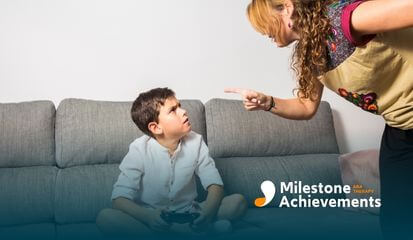
Benefits of Recreational Therapy for Autism
Enhancing Lives Through Recreational Therapy
Introduction
Recreational therapy has emerged as a vital tool in improving the lives of individuals with autism, particularly children. This therapeutic approach leverages structured activities to enhance social, emotional, cognitive, and physical functioning. The versatile nature of these therapies, including art, music, and nature-based activities, offers various benefits tailored to the unique needs of individuals on the autism spectrum. As autism predominantly affects social interactions, communication, and behavior, holistic interventions like recreational therapy provide more than just a respite. They present opportunities for personal growth, skill development, and a higher quality of life. This article explores the numerous benefits and evidence supporting recreational therapy as an essential component of autism treatment.
The Essence of Recreational Therapy for Autism

What is recreational therapy for autism?
Recreational therapy for autism is a therapeutic approach that uses structured activities to enhance individuals' social, emotional, cognitive, and physical functioning. It includes a variety of recreational activities such as art, music, sports, and outdoor adventures, which can be tailored to the needs and interests of each individual. These activities promote social interaction and teamwork, helping individuals build relationships and improve communication skills. Additionally, recreational therapy can help reduce anxiety and behavioral issues, providing a safe space for self-expression and empowerment. Overall, this therapy aims to improve the quality of life for individuals with autism by encouraging participation in enjoyable activities and fostering personal growth.
Types of activities involved
Recreational therapy encompasses various activities designed to address different aspects of life for individuals with autism. Here are some key types:
| Activity Type | Benefits | Description |
|---|---|---|
| Art Therapy | Enhances emotional expression and fine motor skills | Involves creative activities that help students express feelings and develop skills. |
| Music Therapy | Promotes communication and social connections | Engages individuals through instruments and group singing, enhancing interaction. |
| Animal-Assisted Therapy | Reduces anxiety and improves social skills | Involves interaction with animals to foster comfort and companionship. |
| Sports Activities | Boosts physical fitness and develops team skills | Includes activities like swimming, bowling, and karate that improve coordination and social skills. |
| Outdoor Activities | Encourages connection with nature and boosts emotional well-being | Facilitates engagement with nature, promoting peace and sensory regulation. |
| Structured Play | Enhances predictability and eases transition between activities | Provides a structured environment for safe exploration and social learning. |
This diverse range of activities highlights how recreational therapy creates an effective and enjoyable way to develop skills and enhance quality of life for individuals with autism.
Transformative Benefits of Recreational Therapy

How does recreational therapy benefit individuals with autism?
Recreational therapy provides transformative benefits for individuals with autism by enhancing their overall quality of life. Through participation in structured activities, individuals can foster social skills. Engaging in recreational programs allows them to practice communication and teamwork, creating opportunities for meaningful peer interactions in a supportive environment.
In addition to social skill development, recreational therapy plays a significant role in stress management. Activities such as art and music therapy provide creative outlets that promote relaxation and emotional expression. This not only helps in reducing anxiety but also equips individuals with coping strategies to deal with sensory sensitivities and stressful situations.
Moreover, recreational therapy enhances communication and motor skills. Activities like sports, dancing, or group games improve coordination and motor function while encouraging expressive communication. For many individuals with autism, these activities can enhance cognitive abilities and foster a sense of independence, promoting emotional well-being and joy in their daily lives.
The collective benefits of recreational therapy demonstrate its vital role in supporting the diverse needs of individuals on the autism spectrum, contributing to enriched experiences and improved life satisfaction.
Types of Recreational Therapies for Autism

What types of recreational therapies are beneficial for individuals with autism?
Various types of recreational therapies are beneficial for individuals with autism. Here are some prominent categories:
Art and Music Therapy
- Art Therapy: Utilizes creative expression through activities like drawing, painting, and crafts. This approach enhances fine motor skills while allowing individuals to express emotions and improve self-esteem.
- Music Therapy: Engaging in music, whether through singing, instrument playing, or simply listening, promotes communication and social skills. It also supports sensory integration, making it an engaging way to connect with others.
Nature-Based Activities
- Nature interactions have shown restorative benefits. Activities such as hiking or gardening not only promote physical health but also facilitate emotional and social development. Children with autism can connect uniquely with their environment, enhancing their observational skills and reducing anxiety.
- Animal-Assisted Therapy: Interaction with animals, such as through equine therapy or simply pet ownership, can significantly improve social skills and emotional regulation, providing companionship and comfort to individuals with autism.
Physical Activities
- Structured physical activities—like swimming, horseback riding, martial arts, and gymnastics—enhance physical fitness while improving coordination and motor skills. These activities also offer important socialization opportunities through team dynamics.
- Games: Engaging in turn-taking games not only fosters patience but also improves interpersonal skills and encourages collaboration in a fun environment.
By tailoring these activities to match an individual's interests, recreational therapy can provide meaningful and impactful experiences for those on the autism spectrum.
Exploring the Role of Play Therapy

Is play therapy helpful for children with autism?
Play therapy can significantly benefit children with autism by providing a structured environment tailored to their interests and abilities. This therapy encourages engagement in play activities, which are essential for fostering self-expression and communication skills. By addressing the communication challenges and social interaction deficits commonly faced by children with autism, play therapy creates opportunities for enhanced social competence.
Different modalities of play therapy, such as child-centered and sensory integration approaches, focus on improving emotional regulation, social interaction, and personal development. Although research on the effectiveness of play therapy is still developing, there are promising indications that these interventions can support emotional growth and social skills.
Parent and caregiver involvement
Involving parents and caregivers in play therapy enhances the therapeutic experience and increases the potential for positive outcomes. When families participate actively in the process, they reinforce the skills learned during therapy sessions. This involvement not only strengthens family bonds but also supports children in navigating social situations more effectively. A collaborative approach expounds the impact of play therapy, encapsulating both individual benefits and community support.
Empirical Evidence Supporting Recreational Therapy

What empirical evidence supports the use of recreational therapy for autism treatment?
Empirical evidence strongly supports the use of recreational therapy for autism treatment, demonstrating various positive outcomes through research studies. For instance, a notable study involving adolescents indicates that Therapeutic Riding (THR) and HeartMath (HM) interventions significantly reduced physiological stress indicators. Among these, Therapeutic Riding was particularly effective in improving self-reported stress levels during anxiety-inducing situations.
Another relevant study focused on adults with autism found that a structured therapeutic recreation program led to improvements in executive function over ten months, evidencing indirect benefits in social skills and overall well-being.
Further research highlights the effectiveness of music therapy, which has shown enhancements in interpersonal and cognitive skills in children with autism. This therapy also contributes to improved social behaviors while effectively decreasing anxiety levels.
These findings collectively illustrate how recreational and leisure-based interventions can significantly enhance the quality of life for individuals with autism, paving the way for better emotional and social development in various therapeutic contexts.
Practical Implementation for Parents and Educators
Incorporating therapy into daily routines
Parents and educators can easily incorporate recreational therapy into the daily lives of children with autism. Simple strategies include:
- Engaging in outdoor activities: Nature walks, gardening, or participating in team sports can be beneficial.
- Art and music activities: Setting aside time for crafts or playing musical instruments fosters creative expression and fine motor development.
- Structured play: Organizing play sessions where rules are followed helps children learn cooperation, turn-taking, and social skills.
- Utilizing sensory toys: Offering sensory toys can help regulate sensory input and counter anxiety behavior.
Consistency is vital, as regular engagement in these activities can maximize benefits and improve overall well-being.
Long-term benefits for children and families
Recreational therapy provides numerous long-term benefits for children with autism and their families:
- Enhanced social skills: By regularly participating in group activities, children learn and practice essential social interactions and communication.
- Improved emotional health: Activities like art and music therapy can boost self-esteem and promote emotional regulation.
- Strengthened family relationships: Families involved in recreational activities together can experience enhanced bonding and shared experiences.
- Development of independence: Engaging in planned routines helps children develop life skills, improving their ability to manage daily tasks.
Incorporating these practices into everyday life significantly elevates the quality of life for children with autism and creates supportive environments for their growth.
Conclusion
Incorporating recreational therapy into the lives of individuals with autism holds transformative potential. This versatile therapeutic approach not only addresses the core challenges faced by those on the autism spectrum but also fosters an environment of growth and well-being. By engaging in these therapies, individuals can experience improved communication, enhanced social skills, and better physical health. It is crucial for parents, caregivers, and educators to recognize the profound impact recreational therapy can have on enhancing the quality of life for individuals with autism. As research continues to shed light on these benefits, the integration of recreational therapy into autism treatment plans may become an increasingly vital component for improving life outcomes in this community.
References
- Recreational Opportunities For Autism - The Treetop ABA Therapy
- Participation in Recreational Activities Buffers the Impact of ...
- Recreational Activities for Children with Autism
- Top 10 Benefits of Organized Recreation Programs for Children with ...
- The Mental and Therapeutic Benefits of Nature for Children With ...
- The Benefits of Recreation Therapy for People with Autism Spectrum ...
- How Students with Autism Benefit from Art, Music, and Recreational ...
- How Kids With Autism Can Benefit From Recreational Therapy
- Recreational Activities for Children With Autism - Rainbow Therapy


Partner with us on your child's journey
Milestone Achievements offers evidence-based ABA therapy to help children with autism reach their full potential. Together we’ll set meaningful goals and celebrate progress every step of the way.
Start ABA Services Today


